There are many skin conditions that respond favourably to light, such as Psoriasis. This particular skin disease has been medically proven to respond successfully to phototherapy, (UVB Light Treatment).

Skin Condition – Psoriasis
WHAT IS PSORIASIS?
Psoriasis what is it ?
Over 120 million people throughout the world have psoriasis and it is one of the most common skin ailments. It is a chronic, sometimes hereditary, noncontagious skin disorder. It is characterised by scaling and inflammation that can develop on virtually any part of the body, including even a persons nails, and scalp. There are several types of psoriasis ( plaque, pustular, guttate, erythrodermic, and inverse) Symptoms and levels of severity vary, ranging from mild to severe. The level of severity is determined by the amount of coverage of a persons body and how it affects their quality of life.
Causes of psoriasis ?
Psoriasis is a skin disorder that is closely linked to the immune system. The immune system’s T-cells primary purpose is to fight off infection, but a malfunction of the immune system can cause the T-cells to react differently, inciting the skin to produce skin cells too quickly. Skin affected by psoriasis produces new skin cells every 6 to 8 days instead of the normal cycle of skin production of 28 to 30 day. This does not allow enough time for the older cells to slough off naturally and causes the formation of painful plaques.
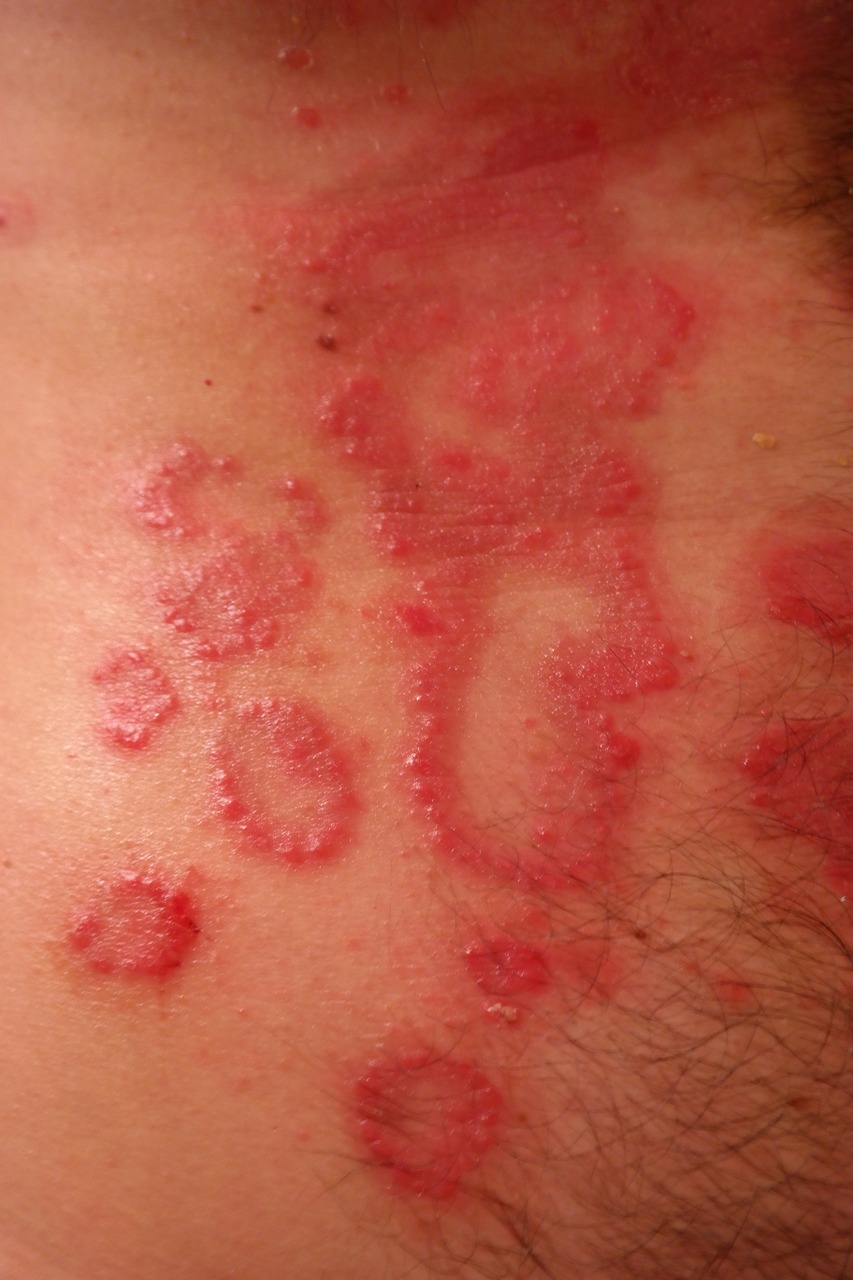
PSORIASIS CAN SOMETIMES BE DIFFICULT TO DIAGNOSE AS IT CAN LOOK LIKE OTHER SKIN DISEASES. ALWAYS CONSULT A DOCTOR TO DIAGNOSE A POSSIBLE SKIN CONDITION
COMMON TYPES OF PSORIASIS
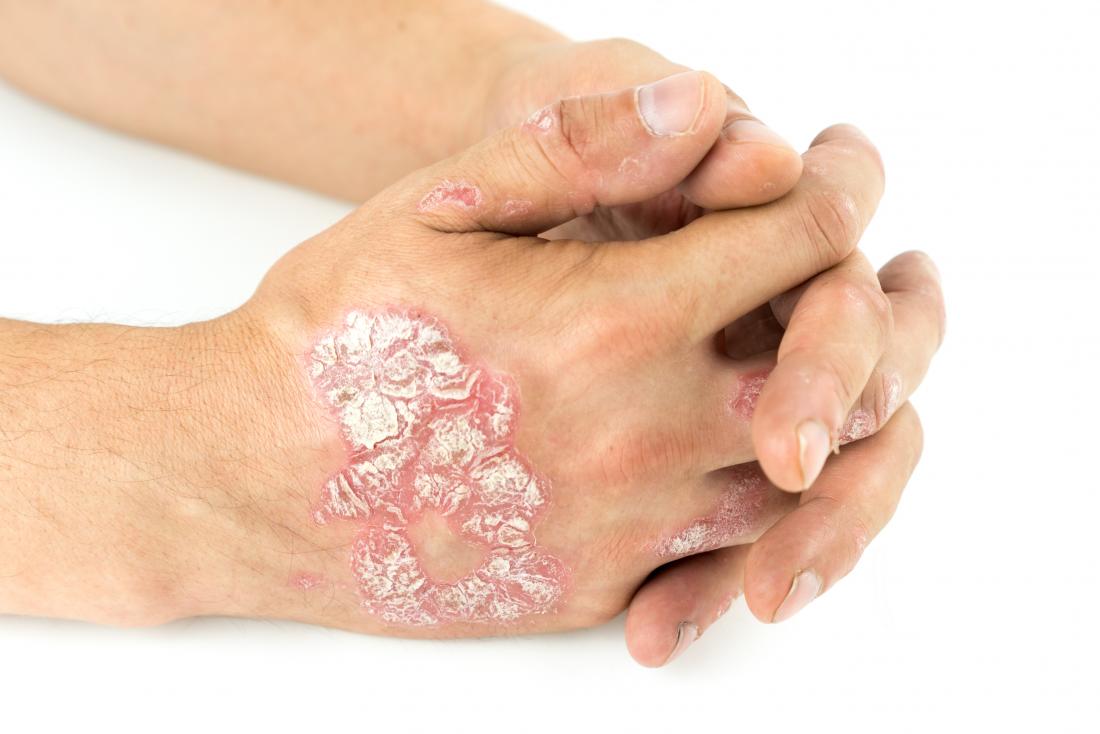
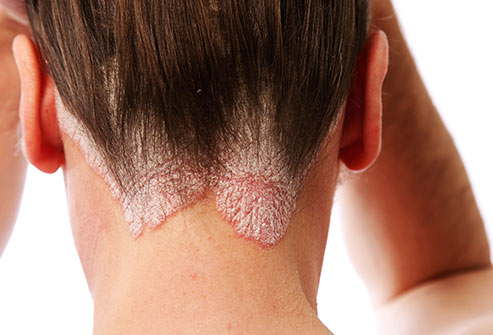
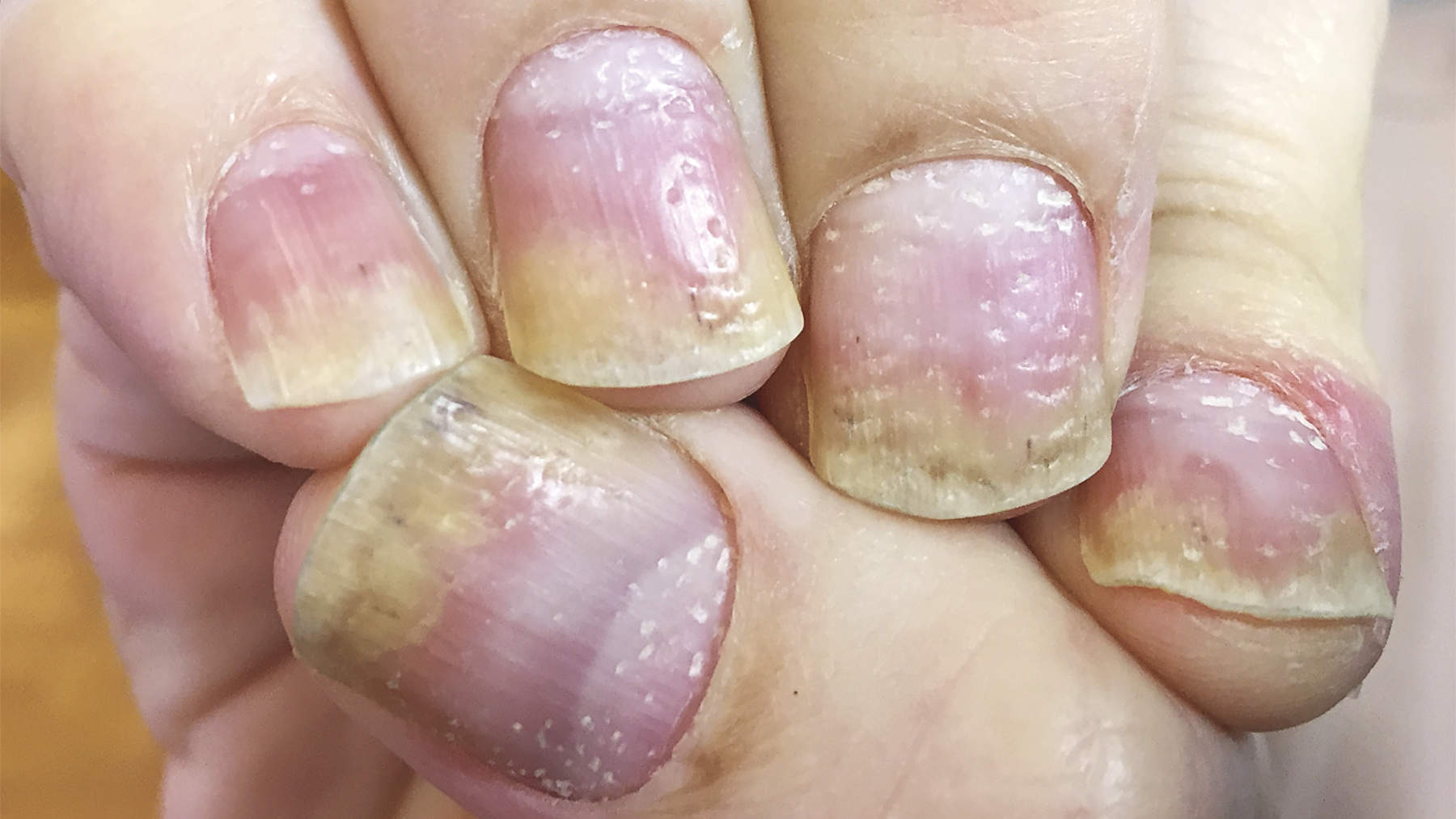
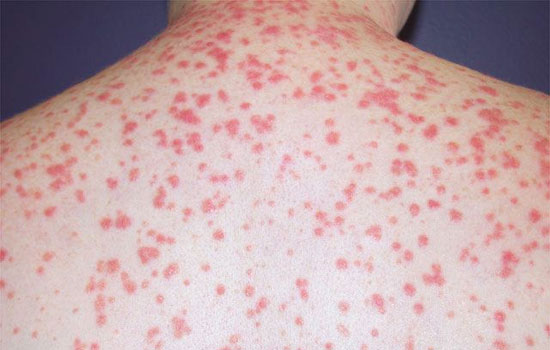
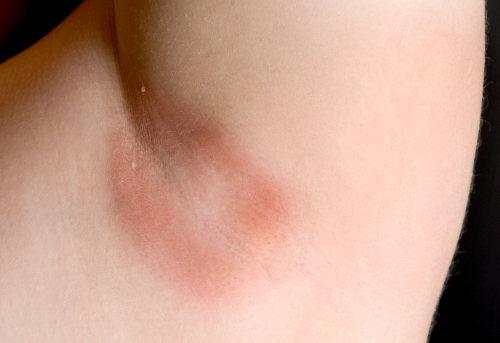
Plaque psoriasis
Approximately 80% of people who have psoriasis have “plaque psoriasis”, either alone or in a combination with another type. It can also be called “psoriasis vulgaris.” as “Vulgaris” means “common.” Plaque psoriasis can be very red, itchy and sore. Lesions are red at the base and covered by silvery scales. If you run your finger over the skin you can clearly feel the plaques. This type of psoriasis can be found on most parts of the body.
Scalp psoriasis
Approximately 50% of people who have psoriasis will have it on their scalp. Symptoms can be mild to the extent you might not notice someone had the condition. It can also be severe and be clearly visible around the hairline, the forehead, neck and behind the ears. Thick, crusted sores can cause intense itching which can result in dandruff like flakes and repeated scratching can lead to skin infections and thinning hair.
Nail psoriasis
Approximately 50% of people who have psoriasis effects the nails. It is often confused with fungal nail infection and should be diagnosed by a doctor. Psoriasis can cause nails to become discoloured, grow abnormally and develop tiny dents or pits. In severe cases, nails can crumble and often can become loose and separate from the nail bed.
Guttate psoriasis
Approximately 10% of people who have psoriasis develop guttate psoriasis. This form of psoriasis frequently develops in children and young adults who have a history of streptococcal (strep) infections. A mild case of guttate psoriasis may disappear without treatment, and the person may never have another outbreak of psoriasis. Some children experience flare-ups for a number of years. Guttate psoriasis is most often triggered by upper respiratory infections (for example, a sore throat caused by streptococcal bacteria). Guttate lesions sometimes form on the face, scalp and ears but more commonly appear on a persons trunk and limbs in the form of small red separate spots. This type of psoriasis can precede or coexist with other forms of psoriasis.
Inverse psoriasis
This is not a common type of psoriasis. Inverse psoriasis is also called “skin-fold,” “flexural,” or “genital” psoriasis. It affects folds or creases in the skin, such as in the armpits, under the breasts, the groin area, or between the buttocks. It can cause large, smooth red patches, which is made irritated by friction and sweating. This form of psoriasis can be severe and incapacitating. and is particularly uncomfortable in hot weather.
ALWAYS CONSULT A DOCTOR TO DETERMINE IF YOUR SKIN DISEASE WILL REACT FAVOURABLY TO LIGHT
LESS COMMON TYPES OF PSORIASIS
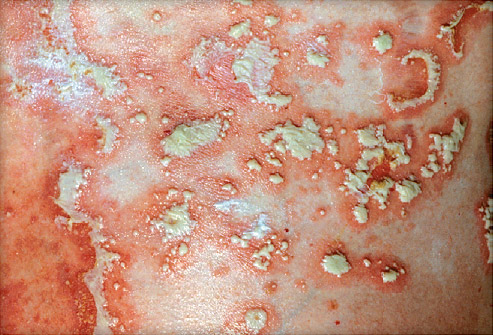

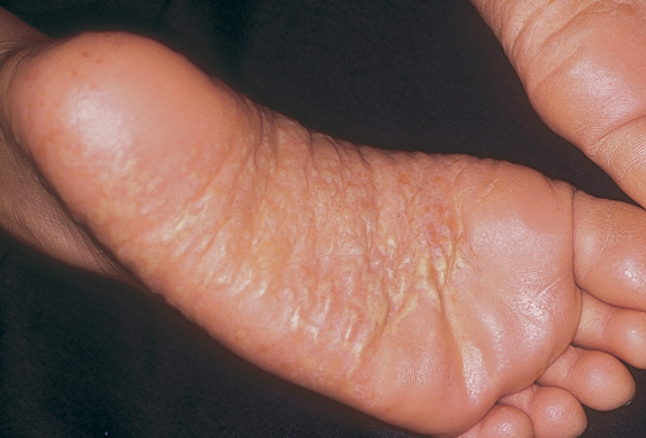
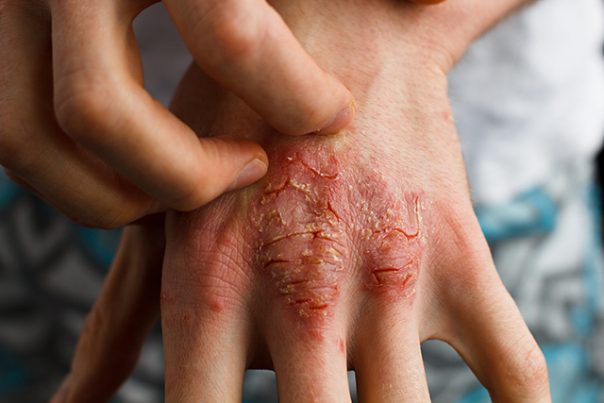
Pustular psoriasis
Approximately less than 5% of people who get psoriasis develop Pustular psoriasis and occurs primarily in adults. It may be the first sign of psoriasis or develop from plaque psoriasis. Different types of Pustular psoriasis affect different parts of the body and causes pus filled blisters ( pustules) Pustular psoriasis can be triggered by infections, sunburn, or medications such as lithium and systemic cortisones. Attacks of pustular psoriasis may be triggered by medications, infections, stress, or exposure to certain chemicals.
Generalised pustular psoriasis
This causes pustules that develop very quickly on a wide area of skin. The pus consists of white blood cells and is not a sign of infection. The pustules may reappear every few days or weeks in cycles. During the start of these cycles, von Zumbusch psoriasis can cause fever, chills, weight loss and fatigue.
Palmoplantar pustulosis
Palmoplantar pustulosis is more common in adults than children and usually effects a persons hands and feet. Pustules develop into circular, brow, scaly spots which then peel off and can reappear every few days or weeks
Erythrodermic psoriasis
Approximately 1-2% of people who get psoriasis Exfoliative” psoriasis and is the least common form of the disease. Erythrodermic psoriasis can be life-threatening because the skin loses its protective functions. The skin may not be able to safeguard against heat and fluid loss nor prevent harmful bacteria and other substances from entering the body. Erythrodermic psoriasis may occur suddenly in a person who has never had psoriasis or it may evolve from plaque psoriasis. Reddening and scaling of the skin may be a reaction to severe sunburn or to taking corticosteroids (cortisone) or other medications. It can also be caused by a prolonged period of increased activity of psoriasis that is poorly controlled.
Is there a cure for Psoriasis ?
Psoriasis is a chronic disease. While most people with this skin condition are able to maintain a good quality of life unfortunately there is no cure. Treatments ultimately only clear or alleviate symptoms for a period of time. In many cases a persons psoriasis will disappear after treatment but will flare up again at a later date. The triggers that are most associated with flare ups are stress, dry air, skin injuries, infections, too much or too little sun, cold weather, some medicines, diet, smoking. and drinking too much alcohol. The key is finding a lifestyle that is best suited for you to keep the psoriasis under control.
